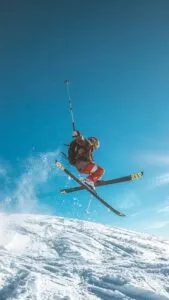
The Best Ski Socks for Canadians
With some of the best ski destinations in the world in our backyard, it makes sense why skiing and snowboarding are some of the most popular winter pastimes for Canadians.
Every skier will have the basics of the hill: a ski jacket, helmet, gloves, boots, goggles, etc. However, one incredibly important piece of equipment often gets overlooked: socks. You may never wonder what the best socks to wear skiing are, but ski socks provide warmth, breathability, warmth and comfort so your feet stay dry and toasty even during the most frigid days.
Ski socks are typically made from a blend of merino wool and/or synthetic materials, designed to be warm but breathable, padded yet light, and long yet non-bunching. With the right pair of ski socks for you, your feet will happy both on the ski-hill and after a day’s ski. Whether alpine or cross country, ski socks are a great way to make your day’s outside more comfortable, and we think anyone who likes shredding powder should consider owning a pair.
Below, you will find our list for the best ski socks in Canada.
Our top picks
Things to consider when buying ski socks
When buying a pair of ski socks, you should consider what you need your socks to do for you on the hill. While ski socks generally provide better warmth, moisture wicking and fit, there are a few things you should consider before clicking “buy now”. For this list, we mainly chose products that were made from wool or other quality water wicking material, that go above your calf and fit snuggly, as these will provide the most warmth and comfort, even after a long day skiing.
Material: Material is one of the most important aspects in how a ski sock will perform on the hill. Cotton retains moisture, which can make you feel colder as you ski. Instead, opt for a material with moisture wicking properties, like merino wool. Many socks on this list will combine merino wool for its thermal and moisture wicking properties with elastic materials like nylon, for a sock that fits snug and does not trap moisture.
Thickness: While thicker socks may seem needed, ski socks are generally super thin to medium in thickness, which provide better warmth. If you typically rent equipment, or your boots have some wiggle room, medium socks can help fill out your boot, but for performance and comfortability, thinner socks and a better fitting boot make the difference.
Height: Most ski socks will go up to over your calf but below you knee, which is ideal. At the very minimum, your ski socks should at least extend above the cuff of your ski boot, to reduce friction of the boot against your skin, which can cause chafing and discomfort.
Fit: If your ski sock feels wrong, chances are it is wrong for you. Trust how your feet feel in your ski socks, and how the socks feel when you are wearing them with your boots. If the socks feel tight and restricting, or bulky and awkward, chances are they are going to cause problems on the hill. Luckily, most socks are snug fitting but flexible, so most socks on this list should not provide issues with fit unless you picked the wrong size.
Cushioning: While many ski socks offer cushioning, it is up to personal preference if you want a padded sock or one with less cushioning. If you find your feet are sore after a day on the hill, cushioning might be something worth trying.
Price: While you may balk at first at paying upwards of $30 dollars for a single pair of socks, it is important to note that Merino is a premium material with premium benefits. Merino socks are naturally anti-odor and water wicking, so you can get many wears out of a wash. Ski socks can last up to many seasons, and chances are you can make it through a ski trip with one to two pairs, so investing a little more for quality socks can make quite the difference. If you are worried about getting your money’s worth, companies like Darn Tough and Smartwool offer solid warranties on their products.
Why trust us
When looking for ski socks, there may be many factors to consider, which may be overwhelming if you have never bought ski socks before or are newer to skiing. In making this list the top-rated ski socks in Canada, we tried to offer a range of different socks so there should be at least one option suited for your needs.
We put over 16 hours of research into the creation of this list. We only took into account ski socks that either had 4-star average on sites like Amazon or had solid reviews on websites that have trusted content on ski and snowboard equipment.
Best wool ski socks
Smartwool Phd Ski Light Socks
Smartwool’s PhD line consistently tops lists of the best ski sock on the market, so it should be no surprise that they have topped our list as well. For most skiers, the Smartwool PhD Light will be the sock they will get the most from, as skiers rave about the comfort, warmth and support that this sock offers.
The sock is made from mostly merino wool and nylon, combining the warmth and the moisture wicking that Merino is known for with the elasticity of the nylon. This means the sock has the elasticity to fit snuggly to your leg and foot, while being breathable and comfortable as well. Light padding on the shin, ankle and bottom of the foot specifically protects the most vulnerable parts of your foot when skiing. This sock comes up over the calf and is approximately 14” tall in overall height. Smartwool’s socks feature Indestructawool technology, which bolster’s high-wear areas of the sock for lasting durability.
Users are very happy with the comfort, warmth and dryness of this sock. Avid skiers like the thinness of this sock, as its’ snugness provides one of the best fits of any sock on this list, hugging the curves of the instep and forefoot. However, these socks may be on the expensive side, so we recommend shopping around before adding them to your cart.
Pros
- Merino construction provides warmth and breathability.
- This light ski socks snugs up against the contours of legs and feet for control and no bunching.
- Lightly cushioned.
Cons
- Can be expensive.
Best ski socks for warmth
Smartool PhD Ski Medium
Smartwool has established itself as the standard of excellence when it comes to ski socks, and while Smartwool’s light socks have the top spot, the Smartwool PhD Medium sock is perfect for those chilly days on the hill or for people who run colder than others.
These socks feature the same material as the light version, but thicker with more padding at the shin area. These socks are also warmer due to the thicker material, so they are a great option for keeping warm on those Canadian ski hills. Overall, these socks are just a different thickness than our top spot, so if you think extra warmth or padding is worth it, or have looser fitting boots, we recommend these socks instead.
Just like the Smartwool PhD Light, users find these socks awesomely warm, dry and comfortable. It seems you really cannot go wrong with Smartwool. However, users have noticed that the woman’s version of the sock has a super tight fit around the calf, but the men’s sock might suit some women better.
Pros
- Merino construction provides warmth and breathability.
- This light ski socks snugs up against the contours of legs and feet for control and no bunching.
- More cushioned, to help reduce shin bang or sore feet.
Cons
- Can be expensive
Best durable ski-sock
Darn Tough Vermont Merino Padded Ultralight Socks
Darn Tough is consistently near the top of reviewer’s lists for ski socks, known for their superior durability, warmth, and comfort. If you are looking for a merino ski sock you can count on for a long time, we recommend Darn Tough’s Vermont Ultralight Sock.
These Darn Tough socks are exactly that, yet they are also lightweight, so they are perfect for repeated uses on the hill in any conditions. The anatomical fit of these socks prevents hot spots or bunching up on the hill. These socks are breathable, anti-odour and quick drying to boot, so you can stretch out one pair of ski socks for a ski trip and your company will not have to tolerate smelly feet.
Overall, Users loved this sock, finding it kept their feet warm, dry and comfortable, and did not slip in use. One thing users mentioned was the sock shrank or stretched out in the wash, however extra care during the wash process may reduce the likelihood of this occurring. (We will detail the best way to tackle this below in our Questions section). However, Darn Tough has an excellent lifetime warranty in case of wear on the hill.
Pros
- Merino wool offers warmth and comfort.
- Comfortable and snug.
- Highly durable, with a lifetime warranty on wear.
Cons
- Not as supportive or formfitting as Smartwool socks.
- Prone to wear from the washing machine.
Best synthetic ski-sock
Eurosocks Ski Supreme Socks
While merino is the most cherished material by alpine afficionados, many synthetic materials provide solid results when keeping your feet dry and warm. The Eurosock Ski Supreme utilizes mainly MicroSupreme, a superfine fibre that has lightweight, warm and moisture wicking properties, making it perfect for ski socks. That makes the Eurosock Ski Supreme the best entirely synthetic Ski sock in our research.
The Ski Supreme sock is lightweight, with a skin-like snug fit and smooth feel, that reduces bunching and keeps your feet dry. With a flat toe steam and supported arches and ankles, Eurosock has clearly designed this sock for those who want both comfort and performance in mind.
Users overall found the sock comfortable, with solid cushioning and a snug yet non-constrictive fit. However, some users did not find the sock was warm enough. Some users also found that these socks wore quickly, especially after going in the wash. We recommend carefully following the manufacturers washing instructions with any ski sock, to ensure your sock is long-lasting.
Pros
- Snug feel.
Cons
- Not durable, especially in the wash.
Best Thin Ski Sock
Best Thin Ski Sock
Long-time skiers and snowboarders prefer thin socks, which provide ultralight cushioning for increased performance while also providing underrated warmth. For high performance, tight-fitting socks, Lorpen Ski Ultra Light Precision Fit Socks are a solid choice without breaking the bank.
Skiers and snowboarders who are after performance often ensure their boots are closely fitted to improve control. These skiers are the target demographic for Lorpen, who aimed for an ultra-light fit, making Lorpen a favourite of Ski–Racers internationally. These synthetic socks give a tight performance fit, which stay in place and remain wrinkle free, without any hot spots, thanks to the high Lycra content of these socks. High Polypropylene content wicks moisture away, and is anti-bacterial, making it a solid replacement material for merino wool found in most socks.
Users like this sock as it moves with your foot in the boot, without wrinkling, bunching or rubbing. Since these socks are solidly water-wicking, and anti-bacterial, so they are great for repeated wears. While some love this tight-fitting sock, but for others it may fit too tight.
Pros
- Ultra thin for precision performance.
- Synthetic Polypropylene wicks moisture away and is anti-bacterial.
- No wrinkling, bunching or running.
Cons
- No cushioning, which may be a detractor for some.
Best compression ski socks
Dissent GFX Compression DL-Wool
Going a step beyond the ultra-thin, compression ski socks are a favourite among the pros for their snug fit with compression. The Dissent GFX Compression DL-Wool is one of the best options for performance-orientated athletes and those with fitted boots. Combining compression with a merino wool, this sock features the fit and high-quality materials that Dissent has built a following for, with warmth for even the coldest days on the hill.
Compression socks are more typical in the medical field than the mountain, but compression socks are actually very handy for certain uses on the ski hill. Thin fitting socks are popular for powder junkies, since they are perfect for use with fitted boots and provide precision results and comfort all day. Compression socks take this one step further, as they help fight gravity to improve circulation in your legs. Sure, they may be a tight fit, but some may find the performance and comfort these socks provide worth it.
Users generally raved about the quality and fit of the Dissent GFX Compression DL-Wool. Common comments included how warm users found the sock, how surprisingly easy they found putting the sock on and taking it off, and how good their legs felt on the hill and afterwards. If you need warmth, this is Dissent’s warmest sock – great for the Rockies or ski destinations out east – but Dissent has a line of other compression socks that provide less warmth for improved fit or breathability. The main knock against these socks is their price, but if you spend lots of time on the ski hill, Dissent compressions socks will be worth the investment.
Pros
- One of the snuggest, form fitting ski socks available.
- Top of the market warmth and breathability.
- Compression helps with blood circulation.
Cons
- Very expensive.
Best budget ski socks
Columbia Winter Blur
If you want a pair of ski socks and still be able to afford a ski ticket after, our choice of budget ski sock is Columbia’s Winter Blur line. These relatively inexpensive ski socks provide warmth and breathability on the hill for around $20.
The Winter Blur line of ski-socks are primarily made from Acrylic and wool, providing both a flexible fit and woolly warmth that most are looking for in a ski sock. With mesh ventilation and power mesh support in the arches, these socks can keep your feet dry and comfy all day, so you can catch runs until the lifts close.
Users enjoy these Columbia ski socks as they are not too thin, not too thick, but ultimately warm. Users generally liked the Columbia Winter Blur as a budget option. While users did not have much negative to say, we found it odd that the men’s sock is listed as handwash only while the women’s sock is listed as machine wash friendly.
Pros
- Dry and warm.
- Inexpensive.
Cons
- Washing instructions seem contradictory, so pay extra attention to the manufacturer’s advice.
Best heated ski socks
Lenz Heat 5.0 Sock
For skiing in the coldest environments or for those skiers that run cold, there is a selection of heated ski-socks on the market that guarantee your feet stay warm on the hill. For a heated ski sock, our recommendation for you is the Lenz Heat 5.0 Slim Fit Toe cap, for its effective solution to cold feet and convenience.
The Lenz heated is powered by a rechargeable lithium battery pack that provides up to 14 hours of added heat, which can be controlled by the Lithium battery or Lenz’s own smartphone app, for convenient access to the heat settings. Charging is convenient, via USB. The titular toe cap keeps the coldest part of your feet warm throughout your day on the hill as well as providing protection. Additional protection is provided by the ergonomic padding on the toe and shin. Finally, this sock is made from a combination of synthetic materials and merino wool, for solid fit and breathability.
Users seemed happy with the heat the Lenz socks provided their feet. However, one criticism is the sock’s thickness: despite being one of their thinner fits, this is a thicker sock than others on the list and should be given a miss if you have well-fitting ski boots.
Pros
- Keep your feet warm with a combination of the fabric and heating element.
- Ergonomic fit with extra padding.
- USB rechargeable.
Cons
- Expensive
- Thicker than other slim fitting socks.
- Some users have had issues connecting the app to their battery pack.
How we picked the best ski socks
For this buying guide, we tried to pick ski socks over a range of style, features and price point, so there should be a sock on this list for everybody. While different people are looking for different things in ski socks, there are a few criteria we valued when making this list, that all the above socks met. First, we found that over the calf or just under knee-high ski socks were best at keeping your feet warm and dry. Secondly, we valued warmth, comfort and breathability – the key aspects that all ski socks should offer. Beyond that, the fit, material and style of your sock is up to your personal preference.
Frequently asked questions
What are ski socks?
Ski socks are socks that go under ski or snowboard boots, providing warmth and extra cushioning. Ski socks are great ways of keeping your feet warm and dry when you are on the hill.
Do I need ski socks?
While you do not need ski socks to ski, it is recommended that you do not use cotton socks when skiing, as cotton socks absorb moisture and can help cause frostbite. Ski Socks are great investment for keeping your feet warm and protected, but another pair of wool socks would also help keep you warm skiing.
Are ski socks worth it?
Ski socks are definitely worth it. You use your feet more than any other body part when skiing, so it makes sense to get socks that are warm, water-wicking and cushioned, so your feet feel their best after a day of shredding powder. Additionally, ski socks are thinner, which helps keep your feet from getting cold and wet as well, as well as tighter, so they stay where they need to be and not cause chaffing or movement within your boot.
How do I wash Ski Socks?
Ski socks are a specialized sports item, so you might want to think twice about washing them with the rest of your socks. Merino socks and synthetic socks have different properties, so you should always carefully read the manufacturers notes on washing. Merino socks for example should be washed inside out on a gentle cycle, avoiding hot water as they can cause wools to shrink. You should use milder soaps, and avoid bleach or fabric softener, as these can interfere with the properties of Merino wool. Additionally, you should air–dry merino ski socks to ensure they last longer.
What is the best material for ski socks?
Merino wool or other thin fabrics that wick moisture are ideal.
Are tight socks dangerous?
Tight socks are preferred in ski socks, as the thinness helps keep the socks warm and dry, as well as keeps the sock from moving inside your boots, which could cause irritation and chaffing. However, if the sock is too tight, it may disrupt circulation.
Is it bad to wear two pairs of socks skiing?
Doubling up socks will make both pairs less breathable, as so your feet will get sweatier with double layered socks, and as a result, colder. Double socks also are prone to bunching up, which can be a real nuisance on the hill.
Where to buy ski socks in Canada?
MEC, Sportchek, and other winter sports stores will carry Ski Socks. Many ski socks are also available online through online retailers including Amazon.
Other choices
Icebreaker’s Merino Ski+ Light socks
Merino wool is one of the best materials for socks, as it is naturally moisture wicking, anti-odor, and soft. Icebreaker is partly responsible for the Merino craze, as the New Zealand company helped the world realize the potential of the wonder wool in the 2000’s. Icebreaker’s Merino Ski+Light socks showcase the amazing properties of the wool, with a high wool percentage that translates into warm feet on the mountain.
However, one of the biggest improvements of the Icebreaker merino ski sock is less merino, as the company dropped the content of the wool in these socks from 70% to 55%. This change is very welcome, as the added nylon content improves the sock’s durability and shape retention. Additionally, sculpted cushioning, Achilles’ support and a seamless toe closure improve the comfort and support that the Ski + Light sock offers will make your feet happy.
Users love how comfortable these socks are, and the change in formula will not be negatively noticeable. One negative that has been noted with the socks is that they are prone to bunch up, but the added Nylon will reduce bunching.
Salomon X Pro
Salomon’s X Pro sock is a lightweight ski sock that is designed for performance and protection. This Salomon sock combines the natural softness of Merino wool with a selection of natural and artificial materials that are designed to keep your feet warm and comfortable all day on the hill.
Despite the thinness of the sock, the Salmon X Pro features an adaptable fit with knitting in the pad area designed to adjust to you. Hydrophobic Dryarn fibres are utilized in the sock’s body, for effective moisture wicking, and NanoGlide technology in the heel, toe and padding of the sock is designed specifically to reduce friction in these key areas, reducing blistering and chaffing. Additionally, reinforcement of the heel and toe help your feet stay comfortable by reducing shock absorption.
Users overall enjoyed the Salomon ski socks, for their thin, comfortable fit and high-quality performance on the hill. Some user’s had issues with the thinness or tightness of the sock, so it should be advised that if you run cold or have thicker calves, this sock may not be what you are looking for.
Read more

The Best Thermal Shirts in Canada
A thermal shirt is one of the bests ways to stay warm during the cold weather.
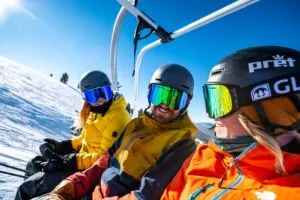
The Best Ski Goggles in Canada
Keep your face warm and improve your visibility on the mountain with these pairs of ski goggles.

The Best Ski and Snowboard Helmets in Canada
With winter in full swing, it’s the perfect time to go skiing or snowboarding.
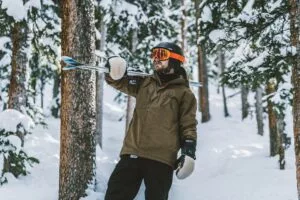
The Best Ski Jackets and Shells in Canada
Stay warm and dry on the hill with the best ski jackets and ski shells.
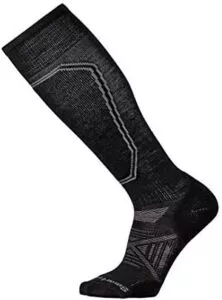
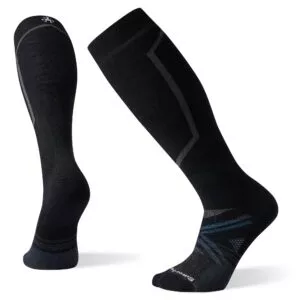
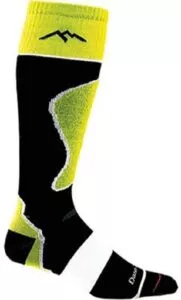
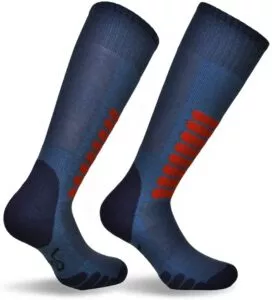
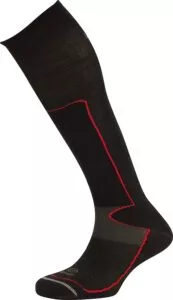
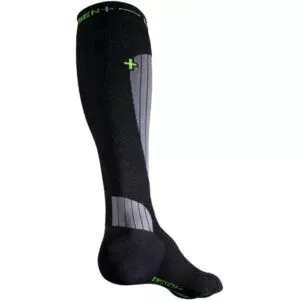
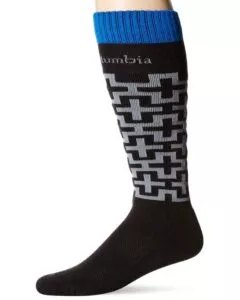
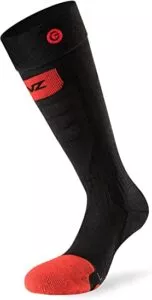
I have been exploring for a little for any high-quality articles or blog posts in this sort of space . Exploring in Yahoo I ultimately stumbled upon this site. Reading this info So i’m satisfied to convey that I’ve an incredibly just right uncanny feeling I came upon just what I needed. I such a lot undoubtedly will make sure to don’t overlook this website and give it a look on a constant basis.
71wl0x
where can i buy priligy in usa Typically, peripheral edema occurs more frequently in dihydropyridine CCBs compared with non dihydropyridine CCBs e
rqf2be
Great info and right to the point. I am not sure if this is actually the best place to ask but do you folks have any ideea where to hire some professional writers? Thanks in advance 🙂
65siji
m9hvx4
yhljta
I think that is one of the so much significant info for me.
And i’m glad studying your article. But wanna remark on some normal things, The site taste is ideal, the articles
is in reality excellent : D. Just right activity, cheers
Feel free to visit my webpage :: γραφεια ντετεκτιβ
Good day! This post couldn’t be written any better!
Reading this post reminds me of my good old room
mate! He always kept chatting about this. I will
forward this post to him. Fairly certain he will have a good read.
Thank you for sharing!
my blog :: μοιχεια